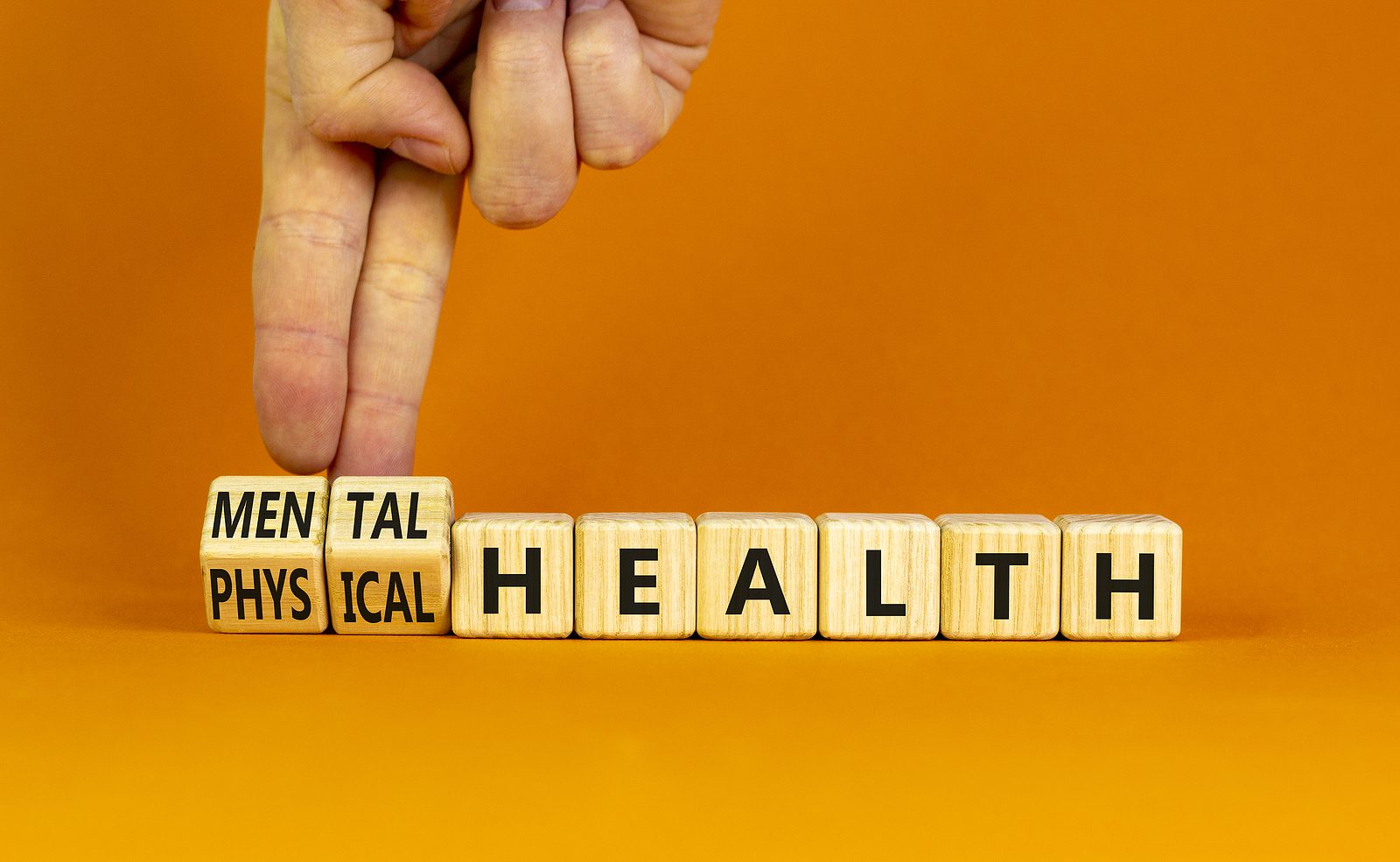The Link Between Mental and Physical Health
Physical health and mental health share a close and symbiotic connection. When one is mentally healthy, this is often reflected in good physical health. Inversely, when one focuses on physical health, mental health often improves – no matter where you are starting from. Mental health and physical health are two sides of the same coin, connected in so many ways that there is not a single deciding factor between the two.
Let’s take a closer look at the bond between your physical health and mental health – and how to make a positive difference for both.
The Physical Side of Mental Health
One way to look at mental health is through neurotransmitters. Dopamine makes you happy. Serotonin can make you sad. Adrenaline and cortisol are related to anxiety and stress. Even estrogen, progesterone, and testosterone can influence your emotional and mental balance. Neurotransmitters determine how you feel even without outside influences like tragedy or stress.
For example, ADHD has been connected to poor regulation of dopamine and norepinephrine. Depression relates to disorders of dopamine and serotonin. Sleep disorders, which can strongly affect both mental and physical health, can be caused by neurotransmitter imbalances.
A healthy body produces a balanced amount of each neurotransmitter and processes them at a healthy rate. An imbalance in any of these, however, can lead to symptoms of both mental and physical decline.
The Mental Side of Physical Health
On the other side of the coin, good mental health is essential for maintaining good physical health. People who suffer from mental health conditions often struggle to maintain the routines and behaviors that keep the body healthy. Depression discourages a person from regular exercise, and sometimes even from basic self-care. Anxiety can cause a person to hold their body tense and release stress hormones that can cause long-term physical damage.
Several mental health conditions increase a person’s likelihood to self-medicate with methods like smoking or drinking, which damage your physical health. It is also unfortunately true that many medications for mental health conditions can cause long-term damage to the body.
And, of course, any mental health disorder that disturbs your sleep will result in physical health deterioration, as sleep is essential for both mental and physical wellness.
Taking Control of Your Mental and Physical Health
When addressing mental and physical health, it’s important to take charge and improve your health whenever possible. This starts by understanding the difference between what you can and can’t control.
If your body naturally generates biochemical depression or anxiety, that’s not something you can control. But you can help your body to generate positive and balancing neurotransmitters that can improve your condition. If you have a low metabolism that makes physical health more challenging, you can use your mental rigor to build a lifestyle that optimizes your body’s physical condition.
By taking charge, you can improve both your mental and physical health at the same time.
How to Improve Your Mental and Physical Health Together
Daily Exercise, Weekly Cardio
Exercise improves your physical health by working your cardiovascular system and strengthening your muscles. However, regular exercise has also been found to boost your overall mood and energy and aid in mental health. Exercise typically releases endorphins and dopamine, while achieving your fitness goals can release norepinephrine, which can all make you feel more positive and focused.
- Stretch regularly
- Take regular walks
- Do cardio at least twice a week
- Join a gym, fitness, or martial arts class
Sleep Well
Sleep is essential for mental and physical health, so better sleep is better for you all-around.
- Go to sleep at the same time every day
- Schedule plenty of time to sleep each day
- Don’t use your bed for anything but sleep
- Darken your room: Cover LEDs and hang black-out curtains
- Ensure your bedroom is cool with gently circulating air
- Block outside sounds with white noise and/or earplugs
- Sleep an hour or two longer after intense exercise days
Have a Good Morning
Your morning routine can also make a big difference for your mental and physical health together. Your routine should be uplifting, healthy, and help you feel fully awake by the time you need to leave for work or school.
- Wake up and stretch
- Drink a full glass of water
- Enjoy your morning self-care
- Do a light exercise routine
- Eat a light healthy breakfast
- Do things that make you happy
Stock Healthy Food
There’s a reason good food makes you feel good: many neurotransmitters are generated in the stomach. Particularly, serotonin which influences both happiness and sadness. So good food nourishes both your body and mind. We know that “dieting” is hard, but eating well is easiest when you stock your home with healthy and comforting foods. Don’t be afraid to experiment with cooking and with healthy snacks to find that perfect balance between nutrition and comfort food.
- Vegetable and meat soups
- Whole grain breads and grain dishes (ex: rice, lentils, oatmeal)
- Lean meats
- Eggs and fish
- Fresh or frozen vegetables
Embracing Mental and Physical Health at Merritt Clubs
Often, a supportive environment and fun activities are the best ways to help yourself embrace a healthy lifestyle. If your goal is to improve your mental and physical health through a healthy routine, Merritt Clubs is glad to help. Our fitness experts can help you build an enjoyable routine and recommend classes or activities that you may enjoy on your journey to mental and physical health.





